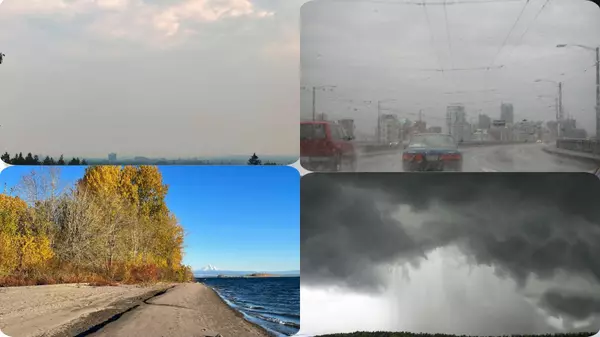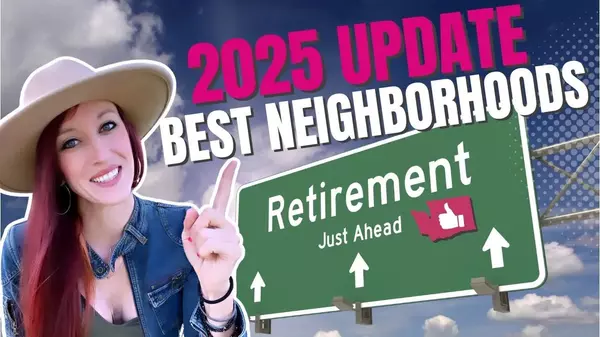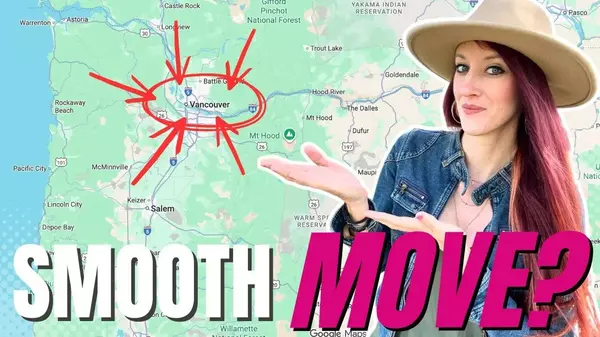Living in Vancouver, WA: Pros, Cons, and Local Insights
Living in Vancouver, WA: Pros, Cons, and Local Insights
Greetings, future Vancouverites and curious minds! Today, let's embark on a journey to demystify the concerns you might have about making Vancouver your new home. Buckle up as we navigate through common questions, unveiling the local perspective on the pros and cons that might not be as apparent in online articles or news snippets.
Before we dive into the nitty-gritty details, let me reassure you – moving anywhere comes with its concerns and considerations. Vancouver is no exception, but my aim today is to provide you with a local's insights on the questions that often swirl in the minds of those contemplating a move to this beautiful city. Let's separate fact from fiction and get to the heart of what you need to know.
1. Crime and Drug Legalization: Balancing Act in the Evergreen State
What You Need to Know: Washington's Stance on Recreational Marijuana
One of the first concerns many have when moving to a new area involves safety, especially with Washington State's decision to legalize recreational marijuana. While the impact is noticeable, it's essential to clarify that Vancouver's law enforcement is dedicated to maintaining public safety. Drug-related crimes, though present, aren't as prevalent as in larger cities. However, some neighborhoods may still grapple with visible drug-related issues and homelessness. The key here is careful community selection.
Pro: Vancouver's law enforcement actively works towards public safety.
Con: Certain areas may experience visible drug-related problems, affecting the neighborhood's quality of life.
2. Weather and Seasonal Affective Disorder (SAD): Debunking the Gray Myth
What You Need to Know: The Reality of Vancouver's Climate
Ah, the infamous Pacific Northwest weather – often blamed for Seasonal Affective Disorder (SAD). While the reputation isn't unfounded, it doesn't mean you're destined to succumb to it. Vancouver's temperate climate allows for a wide range of outdoor activities throughout the year. Yes, SAD is real, but proactive measures like outdoor pursuits and vitamin D supplements can make a significant difference.
Pro: Year-round outdoor activities are available due to the temperate climate.
Con: Be prepared for rain; invest in good rain gear, extra vitamin D, and consider a happy light to combat the SADs.
3. Traffic Woes and Rush Hour Blues: Navigating the Commute
What You Need to Know: The Commuting Landscape in Vancouver
Traffic conditions can make or break your daily routine, and Vancouver's situation is generally more manageable than neighboring Portland. Commuting to Portland during peak hours, however, can be a test of patience. Vancouver boasts a bike-friendly infrastructure and public transportation options, providing eco-friendly alternatives.
Pro: Vancouver is known for its bike-friendly infrastructure and public transportation options.
Con: Rush hour congestion, especially on I-5 and SR-14 towards Camas, can be challenging. Consider adjusting work hours or exploring alternative transportation methods.
4. Cost of Living: Vancouver vs. the West Coast Giants
What You Need to Know: Affordability in the Evergreen State
The cost of living often tops the list of concerns when considering a move. Vancouver, thankfully, offers a more affordable lifestyle compared to West Coast giants like Seattle, San Francisco, or LA. With Washington's lack of state income tax, residents get to keep more of their earnings. However, rising housing prices and a competitive real estate market pose challenges.
Pro: Washington's lack of state income tax is a significant financial benefit.
Con: Housing prices have been on the rise, making affordability an issue for some. Strategic shopping is essential in the competitive real estate market.
5. Vancouver vs. Tacoma/Seattle: The Northwest Face-Off
What You Need to Know: Weighing the Pros and Cons
For those torn between Vancouver and Tacoma, it's crucial to assess the unique aspects of each city. While Tacoma/Seattle offers a vibrant arts and cultural scene, Vancouver's smaller size means less traffic and congestion. The choice boils down to personal preferences, job opportunities, and lifestyle priorities.
Pro: Vancouver's proximity to Portland provides job opportunities in both Washington and Oregon, with less traffic compared to Tacoma/Seattle.
Con: Tacoma/Seattle has a more extensive arts and cultural scene.
6. Vancouver's Real Estate Rollercoaster: A Boom with Challenges
What You Need to Know: Navigating Vancouver's Real Estate Market
Vancouver's real estate market has been on a rollercoaster ride, offering opportunities for homebuyers and investors alike. The median home price is about $550,000, making it more affordable than Portland but still a competitive market.
Pro: A thriving real estate market provides opportunities for homebuyers and investors.
Con: Increasing demand has driven up prices, making entry challenging for some. Competition for desirable properties can be fierce.
In conclusion, moving to Vancouver, Washington, isn't as daunting as it might seem from online snippets or news stories. The concerns are real, but so are the opportunities and the charm of this Pacific Northwest gem. I hope this exploration of common questions has shed light on what to expect when considering Vancouver as your new home.
Sign up for my monthly newsletter to receive expert advice, important local updates, and insider knowledge on the best ways to thrive in this unique region. Whether you're buying, selling, or simply curious about life in the Pacific Northwest, I've got you covered.
👉 Join my newsletter today and never miss a beat! Just enter your email below and get exclusive access to all things Southwest Washington. Let’s stay connected!
Frequently Asked Questions
What are the disadvantages of living in Vancouver?
Some drawbacks include limited public transportation, rising housing costs, traffic congestion during commute hours, and fewer big-city amenities compared to Portland.
Is Vancouver, WA a good place to live?
Yes, Vancouver is considered a great place to live for families, retirees, and commuters. It offers a mix of urban and suburban living, good schools, and no state income tax.
Why are so many people moving to Vancouver, Washington?
People are drawn to Vancouver for its affordability compared to Portland, proximity to nature, lack of state income tax, and access to job opportunities across the river in Oregon.
What is a livable wage in Vancouver, WA?
As of 2025, a livable wage for a single adult without children is estimated to be around $20–$23 per hour, or roughly $45,000–$50,000 annually, depending on lifestyle and housing.
Why are people leaving Vancouver?
Some residents are leaving due to rising housing costs, increasing traffic, and a desire for more rural or affordable areas elsewhere in the Pacific Northwest.
Is moving to Vancouver a good idea?
Yes, for many. Vancouver offers lower taxes than Oregon, access to outdoor recreation, a strong sense of community, and convenient proximity to Portland without living in it.
What is a good salary in Vancouver, WA?
A good salary in Vancouver is generally considered $70,000 or more annually for a comfortable lifestyle, especially for households with children or a mortgage.
Does Vancouver, WA have a homeless problem?
Yes, like many West Coast cities, Vancouver has seen an increase in homelessness. The city is actively working with local organizations to provide support and housing solutions.
What is the nicest part of Vancouver, WA?
Fisher’s Landing, Felida, and areas along the Columbia River waterfront are among the most desirable neighborhoods due to safety, schools, and overall quality of life.
What is the cost of living in Vancouver, Washington?
Vancouver's cost of living is moderate compared to Seattle and Portland. Housing is the largest expense, with median home prices around $475,000–$500,000 in 2025.
Categories
Recent Posts










GET MORE INFORMATION

Cassandra Marks
Realtor, Licensed in OR & WA | License ID: 201225764
Realtor, Licensed in OR & WA License ID: 201225764
